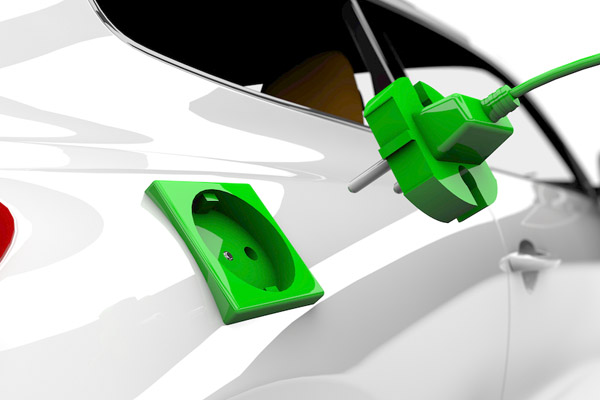Unintended Consequences of Electrification, What You Need Know

The world is convinced that moving from fossil fuels to electricity is the best way to lower our carbon footprint. Is this really the case?
According to the National Propane Gas Association (NPGA), rushing to electrification is a risky proposition. They say, “leaders under pressure about climate and clean energy issues, who also don’t have direct energy experience or understanding themselves, see no flaw in this logic.
There’s no question that government officials and politicians are keen on pushing for clean energy. They fail to realize that adopting this way of thinking could prevent them from achieving a 100% clean energy system by 2050, which is the goal of The Paris Agreement.
Right now, it’s important to share the unintended consequences of electrification and what everyone needs to know. Discover the truth about the cleanliness of electricity, the costs involved, and a better and more affordable option in biofuels.
What Is Electrification?
Table of Contents
The process known as electrification is simple to understand. It involves replacing existing technologies run by fossil fuels including natural gas, oil, and coal. The technologies would be replaced with products that are run solely by electricity as their main source of power.
This could be a bone to the environment and green energy if done correctly, because electrification is one way to reduce carbon emissions. The industrial, building and transportation sector is responsible for 65% of the greenhouse gas emissions in the United States.
Is electrification really the best way to lower carbon emissions? Believe it or not, the conversion to electrification could potentially have damning effects on the environment. If the electricity is generated using resources that also emit carbon dioxide, it will fail to achieve the desired result of creating a world that runs on 100% clean energy.
Some states will benefit from electrification. The state of Washington is a prime example. They primarily generate electricity through hydropower, which means the state would benefit tremendously if electrification were to take place.
On the other hand, the state of Wyoming wouldn’t benefit from electrification very much. The state generates electricity mostly with coal and a small amount of natural gas and renewable energy sources. Unfortunately for Wyoming, their electrification benefits would be negligible at best.
Is there a better way to achieve 100% clean energy by 2050? We’ll look closer at the benefits of biofuels later on.
Electricity: Is It Truly A Source Of Clean Energy?
Did you know that the bulk of the electricity generated comes from fossil fuels? Many people fail to understand this incredibly important distinction. The US Energy Administration tells us that the bulk of the fossil fuels used to generate electricity also emit greenhouse gases.
In fact, in the United States energy production, the EIA tells us that we’re only using renewable energy sources to produce 19% of the total electricity. This seems hard to believe but it’s the current reality nonetheless.
What makes electricity an unclean fuel source? Generating electricity relies too heavily on using oil, gas, and propane for its creation. Now, there’s nothing inherently wrong with propane, oil, or gas. But they’ve been vilified in the media so often that it seems counterproductive to continue to use them to create the bulk of our electricity.
Take the electric car as an example. This seems like a perfectly clean way to drive a motor vehicle without a need for fossil fuels, right? Unfortunately, this is wrong.
The Unspoken Myth Surrounding The Electric Car

In an article published online by Scientific American, we discovered that “Electric cars are great for eliminating oil from transportation because very little US electricity is generated by burning petroleum. But electric cars may or may not help the country combat climate change – and it all depends on where the electricity comes from.”
To delve even further, it’s estimated that trucks and cars are responsible for 24% of the greenhouse gas pollution in the United States. In places like California, where most of their electricity is generated cleanly, they can cut down CO2 emissions significantly.
The South and Midwest are a totally different ball game. Coal is used to generate the bulk of the electricity in those areas. Whereas California would only produce 100g of greenhouse gases per mile, an electric car operating in Minnesota would emit 300g per mile, which defeats the purpose of switching to electric cars in the first place.
Instead of completely electrifying the entire auto industry, a more selective approach would make more sense. Some reasons will benefit a great deal while other regions could end up creating even more greenhouse gases, which is unfortunate.
Electricity Conversion: Homeowners Should Prepare To Pay A Small Fortune To Make The Switch

Not only is electrification far from the savior that the media want you to believe it to be, but it’s also going to be very expensive for homeowners. With inflation on the rise, rising interest rates, and gas prices that are outrageous, it’s hard to believe that homeowners are ready to dig deep into their savings accounts to electrify their homes and lives, knowing that the overall result isn’t what it’s cracked up to be.
As an example, let’s look closer at converting from traditional heating systems to electric heat pumps.
In some cases, certain models of heat pumps require HVAC ducts. Installing ductwork isn’t inexpensive, to say the least. Some older houses likely weren’t even built with ductwork in mind. In these homes, the renovation expenses alone can cost anywhere from $6000-$12,000 to add the correct ductwork.
But that’s not all. In some older homes, they might not be set up to accommodate the power requirements for their new heat pump. In this situation, they may have to upgrade their entire electrical system. This can cost anywhere from $4000-$7000 on top of their ductwork expenses.
Do you think homeowners would be happy to shell out this much money?
Unfortunately, we’re just getting started. Other potential expenses include:
- Electric water heater replacement – parts and labor could potentially cost as much as $4000.
- Electric stove conversion – switching from gas to electric might cost $400 or more, depending on the home.
- Electric dryer conversion – if the home isn’t equipped with the right electrical sockets, it could cost the homeowner between $250-$1000 to make the switch.
- Upgrading electrical service – many older homes are set up to operate at an electric service rate of 100 amperes. Electric homes will likely require 200 amperes, which could cost the homeowner between $750-$4500, depending on the size of the overhaul.
Biofuels/Bioheat® Heating Oil: Reduce Carbon Emissions Immediately For A Fraction Of The Cost

Homeowners want to do their part to reduce greenhouse gas emissions. They are just as concerned about the environment as everybody else. Bioheat® fuel is an effective fuel source to heat homes and minimize carbon emissions starting today.
This fuel source comprises a blend of heating oil (ULSHO) and soy oil (20%). This blend, better known as B20, can instantly reduce a home’s greenhouse gas emissions related to heating by 20% as soon as you switch to this available solution.
It gets even better. This is the only liquid heating fuel that doesn’t vilify oil but instead uses it to blend with cleaner-burning fuels. The overall goal is to create biodiesel blends that have a net-zero carbon emission by 2050.
And using a variety of renewable agricultural byproducts including inedible corn, soybean oil, and cooking oil amongst other natural options, makes it possible to heat homes with Bioheat® heating oil while reducing CO2, particulate matter, mercury emissions, and SOx.
Reduce Greenhouse Gas Emissions Today With EcoBlend Bioheat® Heating Oil

In 2016, 196 countries committed to lowering rising temperatures. The goal is to keep the temperature from rising above 1.5°C. The Paris Agreement was born at this moment, which is why the push for green energy has been so strong over the past five years or so.
Switching to electrification makes sense on the surface. But we know better now. An inexpensive, unobtrusive, and immediate solution to reducing greenhouse gas emissions is to begin heating homes with Bioheat® fuel. The current B20 blend reduces greenhouse gas emissions by 20%.
For those looking to protect the environment by heating their homes with Bioheat®oil, please contact Hart Home Comfort right away to get started. We offer EcoBlend Bioheat® Heating Oil, our version of Bioheat® home heating oil, throughout Nassau County, Suffolk County, and Queens, New York. The sooner homeowners switch to EcoBlend Bioheat® heating oil, the faster they’ll protect the earth from being overloaded with greenhouse gas emissions. Call Hart Home Comfort today!
For any questions about what Hart Home Comfort can do for you, give us a call today. Click here to contact us now or call us at (631) 667-3200 to find out more!
Resources:
https://www.npga.org/news-resources/top-10-reasons-all-electric-is-a-bad-idea/
https://mybioheat.com/bioheat-fuel-vs-electricity/
https://almanacnews.com/news/2022/01/15/guest-opinion-why-electrification-now-is-counter-productive
https://thebreakthrough.org/issues/energy/dont-electrify-everything
https://mybioheat.com/electrification-environmental-impact/
https://www.scientificamerican.com/article/electric-cars-are-not-necessarily-clean/
https://unfccc.int/process-and-meetings/the-paris-agreement/the-paris-agreement
https://www.rff.org/publications/explainers/electrification-101/
https://www.eia.gov/tools/faqs/faq.php?id=427&t=3